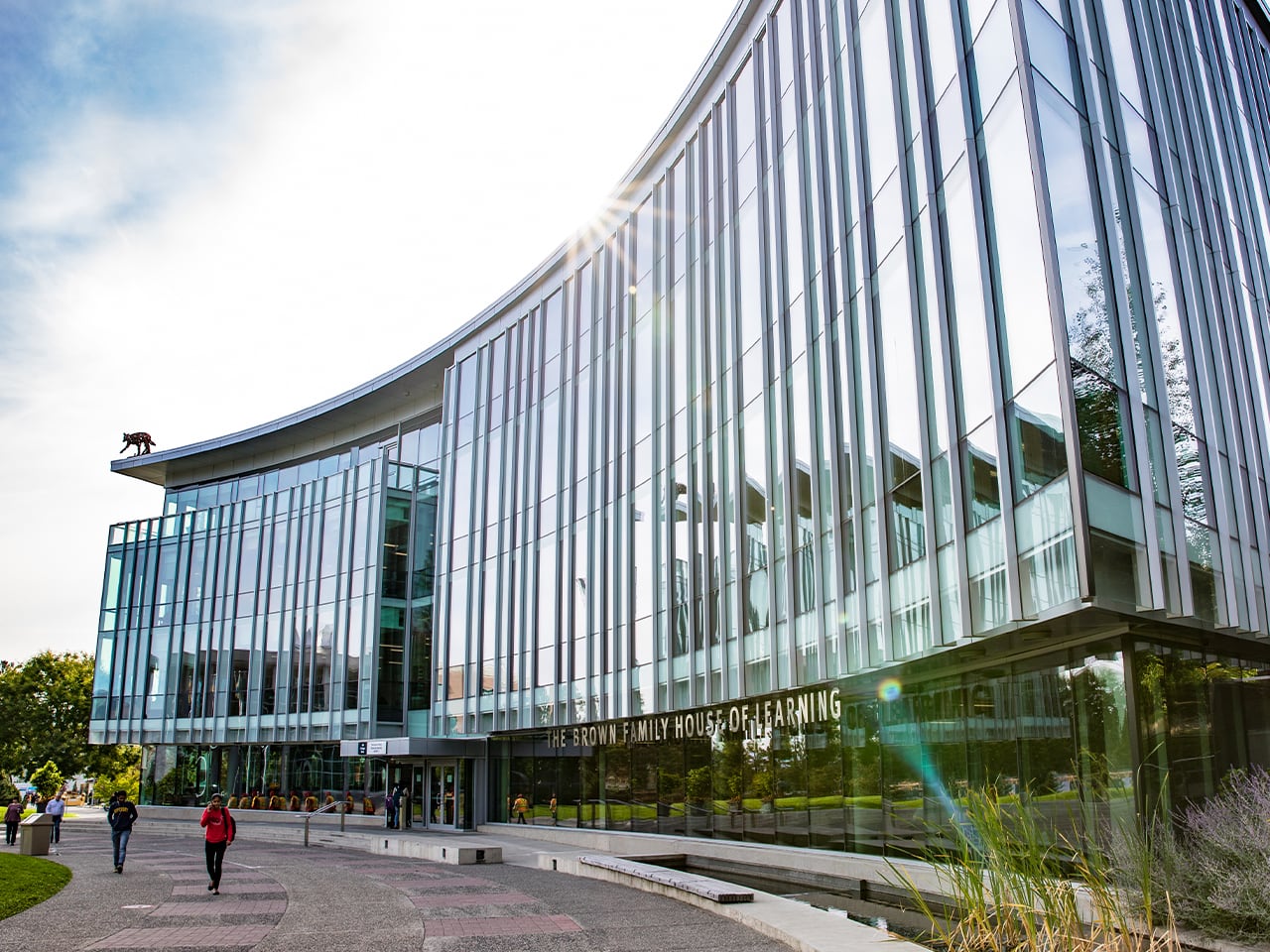The Bachelor of Journalism has evolved. Apply to the Bachelor of Communication and Digital Journalism.
Are you naturally curious? Want to share the day’s events with a wider audience? Inquisitiveness is the foundation for successful journalists. Identify interesting reporting projects and ask questions that inform readers and viewers. TRU’s bachelor of Journalism will supplement your natural curiosity with honed research, interview, photography and writing skills.
Why pursue a Bachelor of Journalism?
Sharpen your skills to excel in the evolving world of journalism and communications. Enjoy an expansive field of career options after graduation—from news organizations to communication and media departments.
Future proof
Prepare to work in media organizations at all levels, from local newspapers to national network television channels. Journalism careers also include marketing, communications, and public information roles. Cultivate the skills that employers are looking for in communication, decision-making, critical thinking, problem-solving, self-learning, ethics and the ability to apply knowledge in real-world settings.
A blend of theory and skill development
The practical side of the program focuses on writing, editing, interviewing, taking photographs, and working with new technology to produce print and online publications. The theory side of the program emphasizes media law, journalistic ethics, decision-making, and critical thinking.
Real world experience
The degree program includes an optional summer internship at a newspaper or magazine, or in the media or public relations departments of government or private agencies. Alternatively, through a six to twelve-week supervised service—learning position, students can explore the range of career possibilities in journalism, public relations, and organizational communication. Propose an internship with multiple options for learning: Traditionally placed in bigger media, freelance, or volunteer with smaller publications as service learning.
Collaborative faculty
Your lecturers approach teaching with compassion for their students and truly foster a productive learning environment. Enjoy classes with enthusiastic, experienced professors, and active listening in smaller classroom settings.
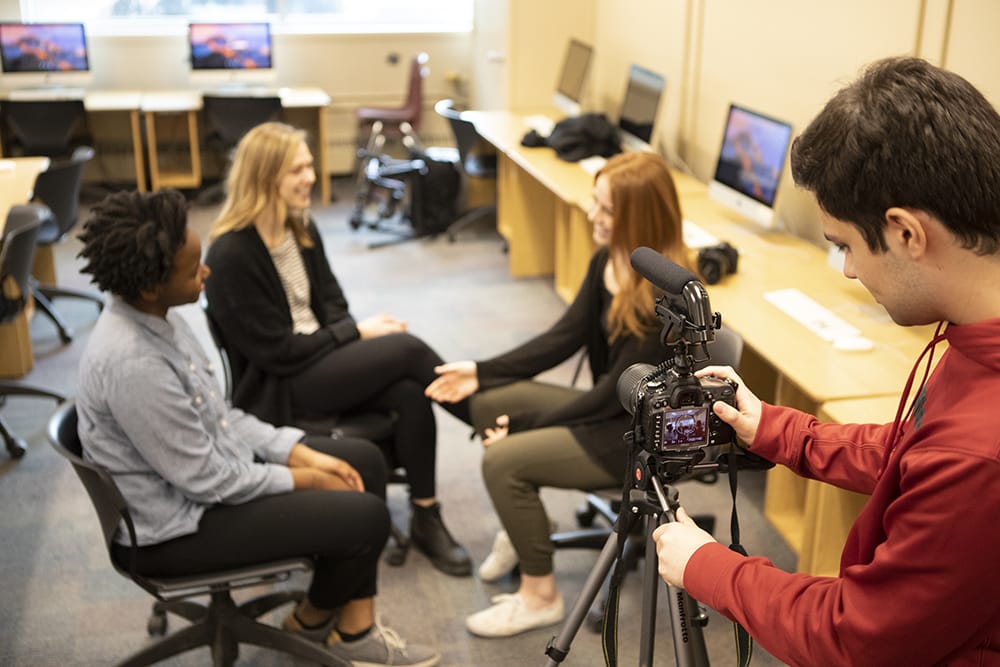
What will I learn?
Study a variety of technical communications used to document professional activity, including proposals, technical and formal reports, policies and procedures, technical descriptions and definitions, and instructions. Become familiar with and produce advanced multimedia and online news presentation techniques. Develop the skills and knowledge required for online journalism.
Refine your writing, reporting and editing skills by developing news and features for publication on the Web. Explore journalism decision-making by studying real-life incidents involving journalists on the job. Learn the high-level research skills used by investigative journalists to uncover information that has often been deliberately hidden from public scrutiny. Analyze social and political issues in Canadian journalism.
Improve your information gathering tactics for journalism, including planning, networking, researching, evaluating, interviewing, summarizing, critical thinking and deadline writing. Find and apply for field experience in journalism-related placements. Explore strategic planning and job-hunting techniques; prepare professional cover letters and resumes, and build and maintain a portfolio.
-
100% of the employed respondents were working full-time
-
90% of graduates said that said the quality of instruction was very good or good
-
90% said they developed the skills to be able to speak effectively, analyse and think critically during their studies
-
80% said the knowledge and skills gained were useful in performing their job
How the program works
The Bachelor of Journalism degree, granted upon the successful completion of 120 credits, includes a minimum of 60 credits of Journalism courses.
Most students enter into the Bachelor of Journalism program at the first year and complete four years ofvstudy in the program, graduating after completing 20 required Journalism courses, along with 20 elective courses.
Students entering at Third-Year who have taken no journalism or communication courses in first or second year would be required to take at least 48 credits of journalism, including the four core second-year courses.
Core curriculum will be adjusted during academic counseling as appropriate for students who have already taken journalism or communication courses in theirvfirst and second years.
- CMNS 1160 Introduction to Communications
- CMNS 2160 Mass Comm. & Popular Culture
- JOUR 2200 Introduction to Reporting Skills
- JOUR 2210 Introduction to News Photography and Videography
- CMNS 2290 Professional & Business Writing
- CMNS 2290 Professional & Business Writing
- JOUR 2060 Introduction to Multimedia
- JOUR 2020 Media Theory and History
- VISA 1500 Introduction to Visual Culture
- CMNS 1290 Introduction to Technical Writing
- ENOL 1100 or ENOL 1110 (or equivalent)
- CMNS 2200 Technology and Communication
- CMNS 2180 Social Networks & Internet Memes
- CMNS 2170 Interpersonal Communication
- JOUR 3700 Media Law and Ethics
- JOUR 3520 Journalism Research Methods
- JOUR 3800, JOUR 3800 and JOUR 4800
Years 1 and 2
The following courses will be required by Journalism students:
- CMNS 2290 Professional, Business and Technical Writing
- CMNS 1160 Introduction to Communications
- CMNS 2160 Mass Communication and the Popular Culture Industry
- VISA 1500 Introduction to Visual Culture
- JOUR 2200 Introduction to Reporting Skills and Techniques
- JOUR 2210 Introduction to Video/Photography
- JOUR 2060 Introduction to Multimedia
- JOUR 2020 Media Theory and History
In the first year, the curriculum emphasizes composition skills and media/communication literacy.
In the second year, the curriculum emphasizes the basics of reporting, writing and storytelling in different media formats and an introduction to the theoretical and historical foundations of journalism.
First and second-year courses are offered every year.
A core one-credit career prep course is offered in second, third and fourth years to help students prepare for and seek internships during their second and third years and jobs or graduate programs in fourth year.
Journalism career prep courses: JOUR 2800, JOUR 3800 and JOUR 4800.
Years 3 and 4
The emphasis in the senior years will be to enable students to develop expertise in multi-media and multi-format journalism.
Students will also have more opportunity to concentrate on developing expertise in specific reporting subjects or beats, reinforced by additional course-work in other disciplines.
Upper-level Journalism courses will rotate every two years to offer more choice to students.
Two senior core courses (JOUR 3700: Media Law and Ethics and JOUR 3520: Journalism Research Methods) and some writing intensive and production courses will be offered every year.
It is highly recommended that students complete a senior project course (JOUR 4750). All faculty will be involved in supervising senior projects that match their areas of reporting expertise and interest.
The Beat Reporting course (JOUR 3230) is a shell course, covering the basics of beat reporting while enabling students to specialize in subjects of their choice.
Third-year entry option
Students entering at third-year who have taken no journalism or communication courses in first or second year would be required to take at least 48 credits of journalism, including the four core second-year courses.
Core curriculum will be adjusted during academic counseling as appropriate for students who have already taken journalism or communication courses in their first and second years.
- Admission to the Bachelor of Communication and Digital Journalism
Career Options / Laddering options
Where will this degree take me?
You will have the opportunity to work with an expert faculty of experienced journalists and state-of-the-art equipment in a program that encourages you to develop the professional and entrepreneurial skills needed to flourish in a changing media environment.
The Bachelor of Journalism degree prepares students for a variety of careers in journalism, including:
- Online publication writer or editor
- Newspaper and magazine reporter or correspondent
- Broadcast Journalism
- Film and video editor and camera operator
- Photojournalism
- Researcher
- Technical writer
- Communications
- Media and public relations departments
- Government agencies
- Corporate communications
- Non-profit and advocacy organizations
Laddering options
You can also leverage your solid research, critical thinking and writing, videography and photography skills acquired as part of your degree into other careers and further education. Many Journalism graduates go on to graduate or professional school programs.
At TRU, you can ladder into the Master of Education.

You don't realize how many people you've met and now know until you walk around on campus and continually see people you know waving and smiling...I belong to the sorority and it's really amazing to see other women from all different disciplines excelling in their chosen fields: Business, sciences, languages, it's so awesome.”
— Andie, Journalism student
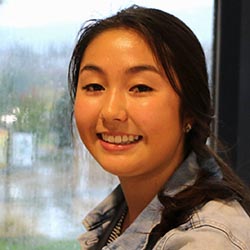
The countless faculty members who invested their time to get to know me on an individual level will always leave a lasting impression on me as I continue into my career. You will find success but most importantly you will find people who will encourage that success from the beginning.”
— Hana Kotani, Bachelor of Arts student
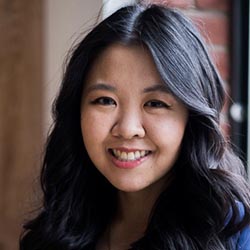
What I like most about TRU is that every single one of my professors have treated me like a person and not as a number. All of the university staff I’ve met have also been really supportive in my educational journey! TRU is awesome, it’s truly a place of learning where professors are actually happy if you go to their office and each lecture is totally worth your time!”
— Emi Ohama, Bachelor of Arts student
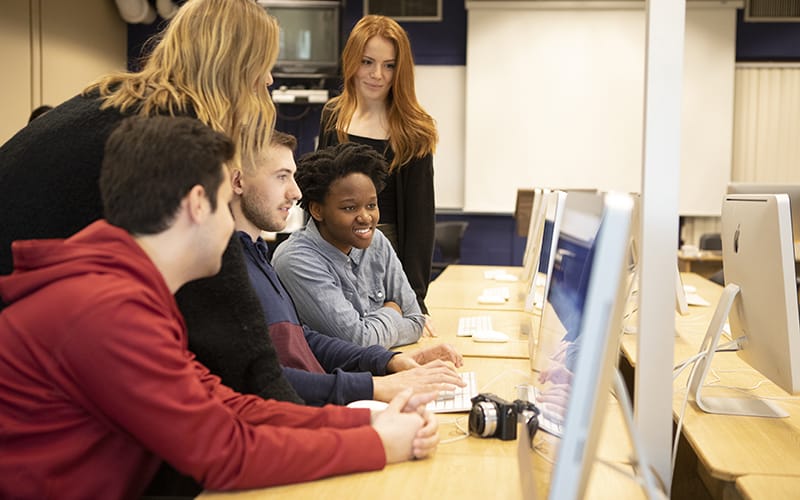
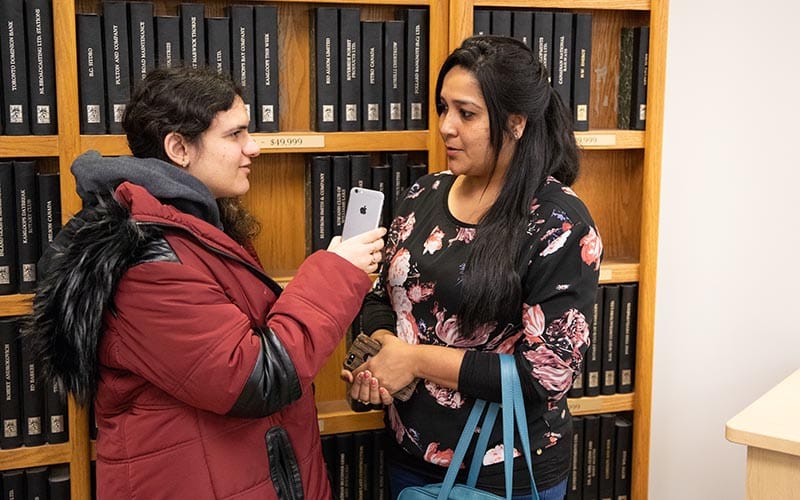
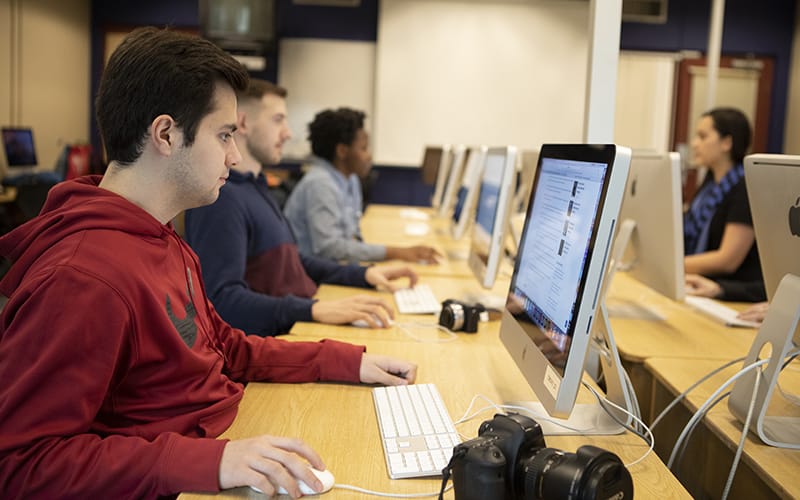
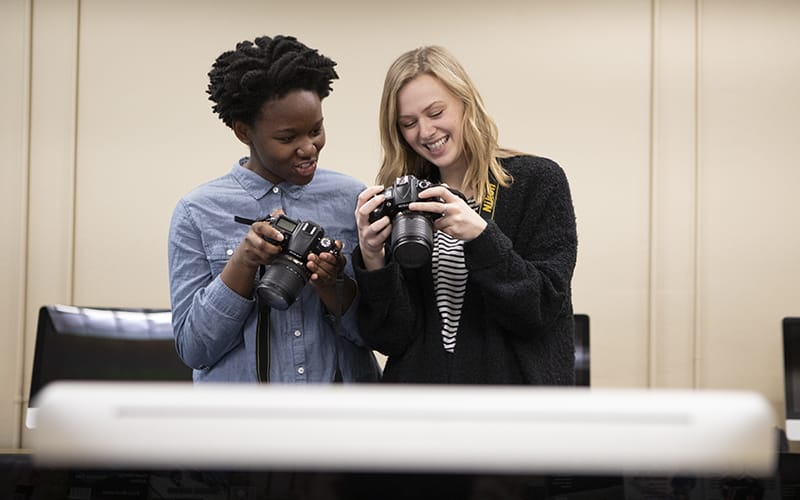
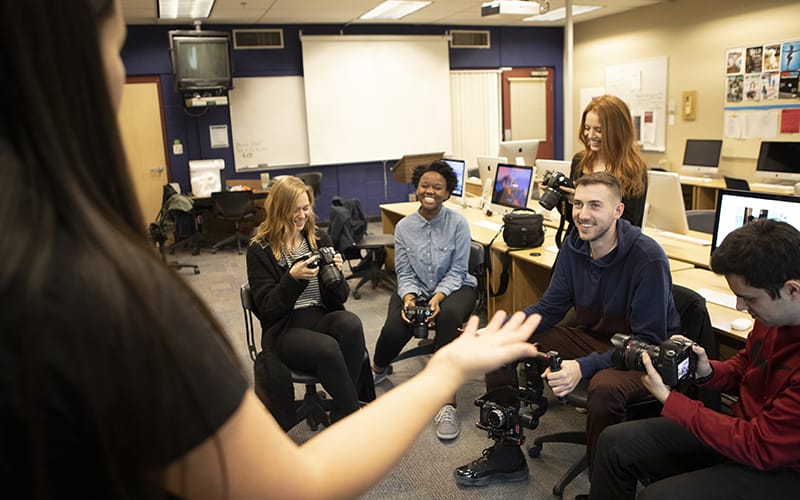
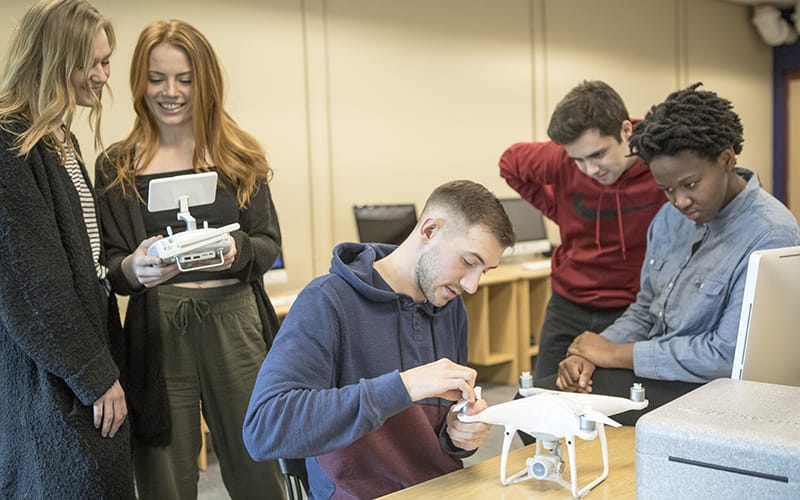
“I hope that eventually my research will be superseded by many other people who carry the work forward. I have been fortunate to be one of a handful of people pioneering the field of Gulag studies, and if I’m one of the people that helps this important subject matter be better known then I will have done some good work.”
— Shannon Smyrl, Journalism, Communication, and New Media Faculty
“There are many things that I find rewarding about teaching—freedom to create and design integrated course work, opportunities to open up avenues to literature that may not have been accessed by students previously, and I like the organization and hard work involved in this vocation. Still, what I find the most rewarding about teaching is the opportunity to potentially change—even in, perhaps, a small way—someone's way of looking at their world.”
— Heather MacLeod, Journalism, Communication, and New Media Faculty
“To share my passion for visual communication, and the feeling of accomplishment seeing students grow in knowledge, confidence, and skills.”
— Colleen Foucault, Journalism, Communication, and New Media Faculty
Program Details
- Credential
- Bachelor of Journalism
- Delivery
- Kamloops
- Length
- Four years
- International
- Open to international applicants

